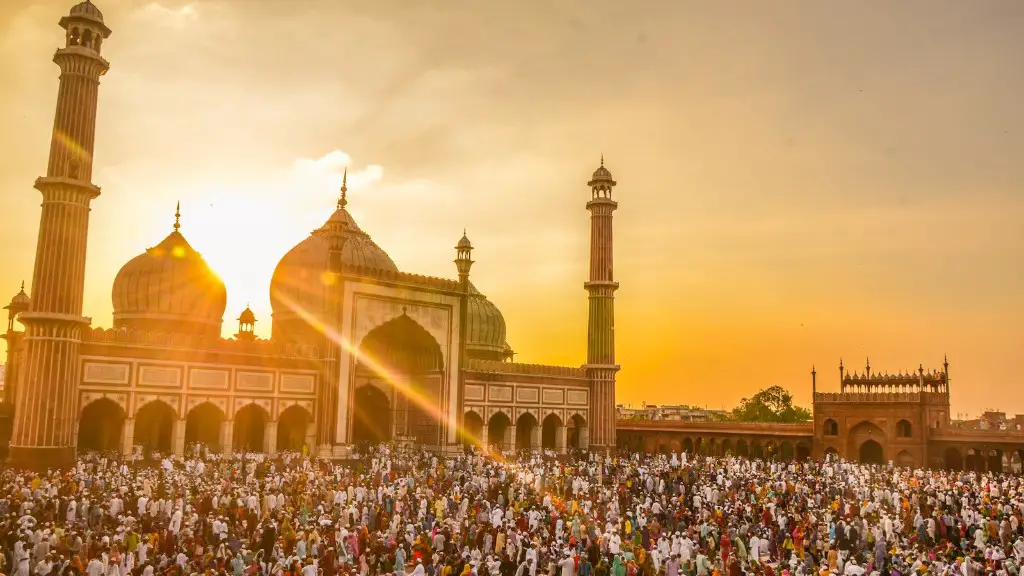Buddhism and Hinduism
Buddhism and Hinduism are two of the world’s most influential religions, both having their roots in South Asia and having remained highly influential in India and its surrounding regions. Buddhism and Hinduism each have their own traditions, beliefs, and practices, which are often intertwined and intertwined to a certain degree. While both are ancient, philosophical events, differences exist between the two religions, and each religion has a different way of understanding the world, its people, and the scope of what is possible.
Although Buddhism is considered a branch of Hinduism, it has a distinct identity. Buddha is not a god, but a great spiritual teacher and leader whose teachings have revolutionized many people’s lives. Buddhists worship concepts like insight, morality, and wisdom, instead of gods and goddesses like Hinduism. According to teachings, the end goal of Buddhism is awakening and liberation from the chain of suffering and re-birth, which is known as nirvana.
When compared to Hinduism, Buddhism has a different view of the cycle of reincarnation. Hinduism focuses on the concept of karma, and the idea that a person’s fate is determined by the balance of the deeds of their past and present lives. On the other hand, Buddhism believes that the cycle of death and rebirth can be broken, and that nirvana can be achieved through following the Dharma, or teachings of the Buddha.
Buddhism and Hinduism also have different beliefs and practices regarding meditation. Hindus believe in meditating to achieve spiritual transcendence, and Buddhists meditate for many reasons, including developing insight and gaining greater understanding of the nature of the mind. Buddhist meditation practices can range from concentration meditation, mantra meditation, metta meditation, and mindful meditation.
Since the two religions share many beliefs, rituals, and traditions, it is sometimes difficult to distinguish between the two. However, the two faiths have a number of differences, including their history, karma, and meditation practices.
Similarities between Buddhism and Hinduism
Both Buddhism and Hinduism place great emphasis on the practice of meditation. Despite the differences between their meditation practices, both believe in the power of meditation to reach a higher level of spiritual knowledge and understanding. Both Buddhism and Hinduism teach followers to practice non-violence and living in harmony with nature. They both emphasize the power of the mind to control one’s destiny.
Both religions have an ancient tradition of honoring the divinity in all living things. In Buddhism, this is called universal compassion, while in Hinduism it is called Ahimsa. Buddhists and Hindus both believe in the concept of karma, or the idea that a person’s actions in this life will affect them in their next life.
Buddhism and Hinduism also share many of the same symbols, such as the swastika, the lotus, and the Bodhi Tree. The two faiths both believe in the power of chanting mantras and worshiping gods and goddesses. This commonality can be seen in how Buddhists approach Hindu gods and goddesses, by associating each deity with a specific aspect of enlightenment, such as compassion or wisdom.
Differences between Buddhism and Hinduism
The central belief system of Buddhism is different from that of Hinduism. Hinduism is rooted deeply in the concept of karma, with its adherents believing that their Actions and thoughts will determine their fate after death. Buddhism beliefs, on the other hand, imply that nirvana can be attainable through living a certain lifestyle, avoiding certain acts and thoughts, and following the Buddha’s teachings.
The concept of karma plays a much smaller role in Buddhism than in Hinduism. Buddhism downplays the importance of deities, while Hinduism often deifies gods and goddesses and worships them as manifestations of divinity. Hindus also emphasize the importance of performing rituals and taking part in social obligations, while Buddhism promotes a less regulated yet more mindful lifestyle.
Buddhist monks usually wear saffron-colored robes and shave their heads, while Hindu priests often wear white or gold saris. Buddhists use a Sanskrit script for some of their religious texts, while Hindus use a different script, like Devanagari. The two faiths also differ in how they view death and suffering; while Hindus view death as temporary and an opportunity for rebirth, Buddhists see it as a gateway to the ultimate truth and liberation.
Origins of Buddhism and Hinduism
Hinduism has its roots in Vedic antiquity, while Buddhism is a more modern religion that has evolved over the centuries. While the ancient belief system of Hinduism has remained more or less consistent for centuries, the Buddhist faith has taken countless forms since it was first formulated around 2500 years ago. Buddhism was born when the prince Siddhartha Gautama rejected the Hindu religion and set off on a spiritual journey, eventually becoming the Buddha.
Hindus recognize and honor the Buddha as a spiritual teacher, while Buddhists revere the Vedas and Upanishads, however, Buddhism is not Hinduism, and today they are two distinct belief systems. While Hinduism is more of a static religion, Buddhism considers itself to be a more progressive and ever-evolving religious path, constantly accepting new pieces of wisdom and knowledge.
In both Hindusim and Buddhism, the ultimate goal is the same, which is to achieve liberation and enlightenment. Hindus seek this enlightenment through the practice of devotion, while Buddhists seek it through meditation and understanding the nature of reality. Buddhism is a religion that has evolved over centuries and is constantly changing, while Hinduism has remained largely unchanged for thousands of years.
Conclusion
Buddhism and Hinduism are two of the oldest, most widely followed religions in the world. While both are ancient practices, differences exist between them, from the view of their gods and goddesses to their understanding of the cycle of karma and reincarnation. Differences between the two religions can also be seen in their rituals and practices, such as meditation and chanting, as well as in their sartorial choices for priests and followers. Despite the differences, both Buddhism and Hinduism share many similar customs and beliefs, and both have provided spiritual guidance and enlightenment to many people.
